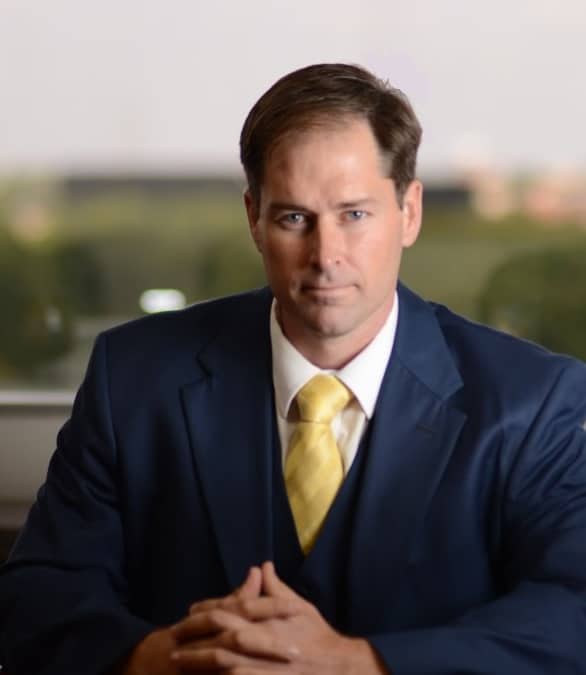Small Business & Collection Lawyers The Woodlands | Katy | Houston | College Station
Contract Disputes: Protecting Your Family Business from Unpaid Debts Click to callSchedule a Free ConsultFree Case Evaluation
(936) 262-7474
Nicholas A. Davis, Attorney
Serving Montgomery, Harris, Fort Bend, Brazos, Grimes, Waller, Walker & Surrounding Counties
The Impact of Unpaid Debts on Your Family Business in The Woodlands, Houston, Katy, & College Station, TX?
Running a family business is no small feat, and while you may have built your business with hard work, trust, and integrity, unpaid debts from clients or customers can put everything at risk. Legal issues can arise unexpectedly, threatening your financial stability, your relationships, and your business’s future. Protecting your family business from legal pitfalls requires proactive planning and understanding the key areas where disputes are likely to arise.
Unpaid debts do not resolve themselves. The longer they linger, the greater the financial burden and potential legal complications. Addressing unpaid debts early by working with a trusted collections attorney can prevent significant losses and legal challenges down the road.
Collecting Your Unpaid Bills
Understanding the Collections Process and Its Importance for Your Family Business
What is Collections Law?
Collections law refers to the legal processes and procedures used to recover money owed by clients, customers, or businesses. When someone fails to pay a debt, collections law provides the framework for ensuring the debtor is held accountable. Collections lawyers are essential in guiding businesses through this process, ensuring that they comply with federal and state regulations such as the Fair Debt Collection Practices Act (FDCPA).
Why Unpaid Debts Are a Threat to Your Business:
Unpaid debts can severely affect your cash flow, causing operational difficulties. Without timely payments, your family business may struggle to pay suppliers, meet payroll, or maintain inventory. This can lead to delayed deliveries, unhappy employees, and even damaged relationships with business partners. When debts are left unaddressed, it can also lead to tension within the family, further complicating business operations.
Business Unpaid Debts Impact on Family Business
Common Causes of Unpaid Debts in Family Businesses
Customer Disputes and Delays:
Misunderstandings between customers and family businesses often result in delayed or non-payment. These disputes can arise from unclear expectations, poor communication, or disagreements over product quality. To avoid such issues, ensure contracts are clear, and terms are fully understood by both parties.
Economic Factors and Client Financial Struggles:
Economic downturns, changes in market conditions, or financial issues on the client’s part can result in payment delays. It’s essential for family businesses to have solid credit policies and payment terms that account for potential financial instability in clients.
Ineffective Billing and Payment Systems:
The lack of proper billing systems or unclear payment terms can significantly contribute to unpaid debts. If clients are not reminded in time or invoicing is delayed, it becomes difficult to track payments. Implementing automated invoicing systems and payment reminders can streamline collections and reduce human error.
Family Conflicts:
In family-owned businesses, internal conflicts can complicate debt collection efforts, especially if the debtor is a family member. Having professional protocols in place for debt collection is crucial in these cases to avoid escalating personal disagreements.
Avoid Large Accounts Receivables for your Business
Steps to Protect Your Family Business from Unpaid Debts
Step 1: Establish Clear Payment Terms from the Start
Clear and concise contracts are essential in preventing disputes. Define payment terms, deadlines, and penalties for non-payment upfront. Work with contracts attorneys to ensure that your agreements are solid and enforceable.
Step 2: Implement Effective Billing and Payment Systems
Invest in automated invoicing systems that ensure invoices are sent promptly and tracked efficiently. Additionally, offer clear payment options (e.g., credit cards, ACH, and online payment platforms) to make it easier for clients to pay on time.
Step 3: Perform Credit Checks and Assess Risk
Before entering into agreements with new clients, perform credit checks to assess their ability to meet financial obligations. Collections lawyers can guide you in evaluating credit risk and help create policies for extending credit.
Step 4: Keep Communication Open with Clients
Regular, professional communication is key to preventing disputes. Discuss payment expectations, timelines, and any issues upfront to avoid misunderstandings. Collections lawyers can send official reminders and warnings that are legally compliant while maintaining your business’s professionalism.
Step 5: Enforce Contracts and Take Legal Action When Necessary
If disputes arise, take action immediately. Whether it’s sending a demand letter or initiating a lawsuit, it’s important to work with commercial debt lawyers to take legal action quickly and effectively, minimizing financial damage.
What to Do If Your Customers Fail to Pay
How to Handle Unpaid Debts with Legal Action
Step 1: Send a Formal Demand Letter
If payment issues are unresolved, a collections attorney will draft a demand letter. This document should clearly outline the debt, payment deadlines, and legal actions that will be pursued if payment is not received.
Step 2: Negotiating Settlement Agreements
Sometimes, a settlement agreement can resolve a dispute without escalating to litigation. Debt collection lawyers can help negotiate a fair settlement, which can prevent a prolonged legal battle and preserve valuable business relationships.
Step 3: Filing a Lawsuit for Debt Recovery
If negotiation fails, filing a lawsuit may be necessary. Business attorneys will help you gather the proper documentation and represent your business in court to recover the debt.
Step 4: Enforcing a Judgment
Once a judgment is made, you can enforce it by garnishing wages, seizing assets, or placing liens on property. Commercial debt lawyers will guide you through the enforcement process, ensuring compliance with the law.
Nick Davis Law – Small Business Lawyers
The Role of Collections Lawyers in Protecting Your Family Business
Why You Need a Collections Attorney:
A dedicated collections lawyer can help navigate the complexities of collections law and ensure your business follows proper legal procedures. They will protect your interests, preventing the loss of business or family assets.
Risk Mitigation and Debt Recovery Strategy:
Commercial debt lawyers can help design a debt recovery strategy tailored to your family business. They will assist in evaluating potential risks and guide you on minimizing these risks through proactive measures.
Handling Family Business Conflicts:
Disputes within the family can complicate debt recovery efforts. A business attorney can mediate these conflicts, ensuring that the process is fair and in the best interest of the business.
Future Success for Your Business
Preventing Future Unpaid Debts in Your Family Business
Establishing a Risk Management System:
A comprehensive risk management system helps evaluate the financial health of potential clients and track payments. This proactive approach will protect your family business from future debt issues.
Creating Financial Policies and Protocols:
Clear financial policies and procedures ensure that everyone involved in your business understands how to handle invoices and payments. Regular audits and updates to your systems will prevent unpaid debts from spiraling out of control.
Educating Employees and Family Members:
Investing in training for employees and family members on contracts and debt collection practices will help your business avoid legal pitfalls and improve overall communication and management of contracts.
How Nick Davis Law Can Help
Protect Your Family Business – Act Now to Prevent Unpaid Debts
Don’t wait until unpaid debts threaten your family business. Consult with a trusted business attorney today to ensure your contracts are robust and your collections process is streamlined. Protect your family’s legacy by acting now to prevent future financial issues.
Unpaid debts are a major threat to the stability and future of your family business, but they don’t have to cripple your operations. By taking action now and involving a trusted commercial debt lawyer early in the process, you can ensure your business stays financially secure, protects its reputation, and avoids costly legal battles. Contact business attorneys in Houston, The Woodlands, Katy, or College Station to start protecting your family business today.
FAQ
Frequently Asked Questions
What is the difference between Chapter 7 and Chapter 11?
Chapter 7 is a liquidation bankruptcy primarily for individuals looking to discharge unsecured debts, while Chapter 11 is a reorganization bankruptcy, usually for businesses or high-income individuals, allowing them to restructure debt and retain assets.
Can bankruptcy stop creditor harassment?
Yes. Once you file for bankruptcy, an automatic stay immediately halts all collection efforts, including phone calls, lawsuits, and wage garnishments.
How long does the bankruptcy process take?
Chapter 7 cases typically take 3 to 6 months, while Chapter 11 cases can last several months to a few years depending on the complexity of the restructuring.
Can bankruptcy help with my tax debts?
Some tax debts can be discharged, but it depends on specific factors. We will analyze your situation in detail to determine how bankruptcy can best help you with tax obligations.
Will I lose my home or car in bankruptcy?
In most cases, Texas law protects homes through the homestead exemption and personal property like cars under state exemptions, allowing you to retain them.
Will filing for bankruptcy ruin my credit forever?
No, filing for bankruptcy will impact your credit score, but it won’t ruin your credit forever. Most individuals who file for bankruptcy start rebuilding their credit within a year of receiving a discharge. Nick Davis Law can guide you through post-bankruptcy financial management strategies to help you recover and improve your credit over time.
Do I have to go to court when I file for bankruptcy?
In most bankruptcy cases, you’ll be required to attend a meeting of creditors (341 meeting), where the bankruptcy trustee will ask questions about your financial situation. However, this is not a courtroom hearing and now is primarily conducted only by Zoom. For Chapter 11 cases, court appearances may be necessary for plan confirmations or hearings. Nick Davis Law will prepare and represent you at every step to ensure you’re fully informed and protected.
Can I include all of my debts in a bankruptcy filing?
Not all debts are eligible for discharge in bankruptcy. While unsecured debts like credit card balances and medical bills are typically dischargeable, other debts—such as student loans, child support, alimony, and certain tax debts—may not be. We will thoroughly review your debt portfolio to help you understand which debts can be discharged.
Can I keep my business open if I file for Chapter 11 bankruptcy?
Yes, in Chapter 11 bankruptcy, many businesses are able to remain operational while they reorganize their debts. Chapter 11 allows you to create a plan to restructure and pay down debts without closing your business. We help you navigate the complexities of Chapter 11 to ensure your business can survive and emerge stronger.
How much does it cost to file for bankruptcy?
The cost of filing for bankruptcy includes court filing fees and attorney fees, which vary depending on the complexity of your case. Chapter 7 cases generally costs significantly less and at our office is offered for flat fees due to their quicker resolution, while Chapter 11 cases tend to be more expensive, with hourly charges, due to their extended duration and complexity. At Nick Davis Law, we provide transparent pricing and work with you to create an affordable payment plan based on your needs.
ADOPTION
CHILD CUSTODY
CHILD CUSTODY MODIFICATIONS
CHILD SUPPORT
CHILD SUPPORT MODIFICATION
CHILD SUPPORT ENFORCEMENT
FAMILY VIOLENCE
PROTECTIVE ORDERS
ANNULMENT
DIVORCE
BUSINESS OWNER DIVORCE
COMMON LAW MARRIAGE
HIGH NET WORTH DIVORCES
MARITAL PROPERTY AGREEMENTS
SPOUSAL MAINTENANCE / ALIMONY
UNCONTESTED DIVORCE
From the Blog
Recent Articles
Take Control of Your Financial Future Today
FLEXIBLE APPOINTMENTS | PAYMENT PLANS
Get a Free Consultation Now
Contact Nick Davis Law, serving The Woodlands, Katy, Houston, College Station and surrounding cities and counties. Take control of your financial future today—call us at (936) 262-7474. Our Montgomery, Harris, Fort Bend, Walker, Brazos, Grimes, Waller County Bankruptcy Lawyers regularly offer After-Hour & Weekend Phone and Virtual Consults and Payment Plans.
Contact us
Nick Davis Law
26418 Oak Ridge Dr.
The Woodlands, TX 77380
(936) 262-7474
The Woodlands, Texas
26418 Oak Ridge Dr.
The Woodlands, TX 77380
(936) 262-7474
Appointments Only
Bryan | College Station, Texas
750 William D. Fitch Pkwy, Ste 210
College Station, TX 778455
(979) 417-2220
Business Hours
Mon - Fri 8:00 am to 6:00 pm
Our Mission
The Trusted Family, Divorce, Bankruptcy, CPS, and Small Business Lawyers at Nick Davis Law are dedicated to providing the best and most efficient representation possible to our clients to achieve their goals quickly and cost effectively. Nick Davis Law maintain offices in The Woodlands, Katy, Texas and Bryan | College Station and serve all of Montgomery County, Brazos County, Walker County, Waller County, Grimes County, Washington County, Burleson County, San Jacinto County, Liberty County, Harris County, and surrounding counties.



